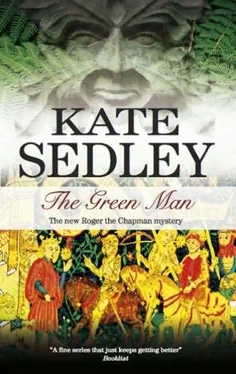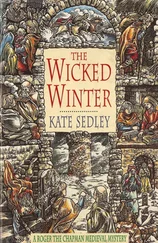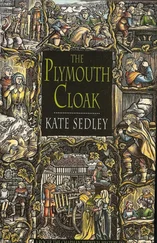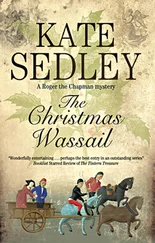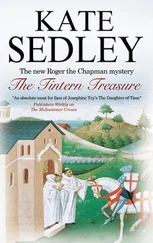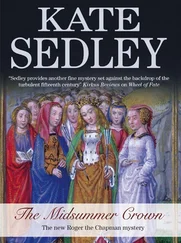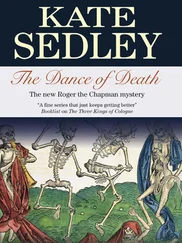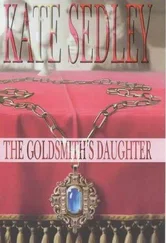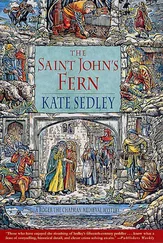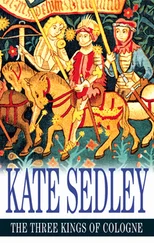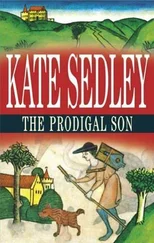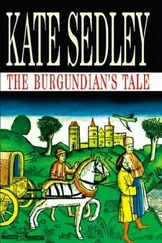Kate Sedley - The Green Man
Здесь есть возможность читать онлайн «Kate Sedley - The Green Man» весь текст электронной книги совершенно бесплатно (целиком полную версию без сокращений). В некоторых случаях можно слушать аудио, скачать через торрент в формате fb2 и присутствует краткое содержание. Жанр: Исторический детектив, на английском языке. Описание произведения, (предисловие) а так же отзывы посетителей доступны на портале библиотеки ЛибКат.
- Название:The Green Man
- Автор:
- Жанр:
- Год:неизвестен
- ISBN:нет данных
- Рейтинг книги:3 / 5. Голосов: 1
-
Избранное:Добавить в избранное
- Отзывы:
-
Ваша оценка:
- 60
- 1
- 2
- 3
- 4
- 5
The Green Man: краткое содержание, описание и аннотация
Предлагаем к чтению аннотацию, описание, краткое содержание или предисловие (зависит от того, что написал сам автор книги «The Green Man»). Если вы не нашли необходимую информацию о книге — напишите в комментариях, мы постараемся отыскать её.
The Green Man — читать онлайн бесплатно полную книгу (весь текст) целиком
Ниже представлен текст книги, разбитый по страницам. Система сохранения места последней прочитанной страницы, позволяет с удобством читать онлайн бесплатно книгу «The Green Man», без необходимости каждый раз заново искать на чём Вы остановились. Поставьте закладку, и сможете в любой момент перейти на страницу, на которой закончили чтение.
Интервал:
Закладка:
‘Then you will come under armed escort, as my prisoner.’
I glanced at Adela. She was looking sick and white with the thought of my going so far from her and the children and with the fear that I might never come back again. I stretched out a hand and squeezed one of hers, trying to speak bravely for her sake.
‘I shall be all right, sweetheart. I’ll be home again well before Christmas, you’ll see.’ I grinned feebly. ‘The months will fly by without me to distract you. You know you always say that it’s like having four children to look after when I’m around.’
‘He’ll be safe enough,’ Timothy endorsed heartily. ‘And both Duke Richard and my lord Albany have sent purses of money so that you’ll want for nothing, Mistress, in Roger’s absence.’
‘Men!’ my wife exclaimed scornfully. ‘You all think money makes up for everything. Well, it doesn’t make up for a cold, empty bed or for someone to fetch wood and bring in water. It doesn’t make up for someone to talk to after a day of talking to no one but the children.’
I knew this latter statement was something of an exaggeration. If two days passed without Margaret Walker — my former mother-in-law and Adela’s cousin — visiting our house, or my wife visiting hers, I knew nothing of the matter! But I made no comment, merely turning my own reproachful gaze on our guest, even though I knew it was in vain.
‘I’m sorry,’ Timothy said; and to do him justice, he did manage to sound genuinely regretful. ‘But there’s no help for it. Roger must go to Scotland, and that’s an end to it, I’m afraid.’
Three
My first sight of Fotheringay Castle filled me with foreboding.
A great, grim pile rising out of the flat Northamptonshire landscape, it looked like some prehistoric creature crouched to spring and devour the unwary traveller. A heavy, brooding keep stood stark against the skyline. A double moat guarded three sides of this formidable fortress and a river, which I later learned to be the Nene, made up the fourth side of its defences. Within the massive walls was a huge courtyard, around which were grouped the living quarters, including the great hall, chapel and all the workshops necessary to make such a vast edifice self-supporting. In the event of a siege, it could probably have held out for months.
This, then, was the stronghold of the Yorkist branch of the Plantagenet tree, who now occupied the throne and to whom we all owed allegiance. Here, Richard, Duke of Gloucester, had been born nearly thirty years earlier, and here the bodies of his father, Richard, Duke of York, and one of his elder brothers, Edmund, Earl of Rutland — both killed at the bloody battle of Wakefield — had been re-interred with great pomp and ceremony a mere six years ago.
I have to record that nothing about it alleviated my feeling of deep misery and gloom.
I had left Bristol the day after Timothy’s unwelcome appearance and accompanied him first to London where I was reunited — if I may call it that — with His Grace, Alexander Stewart, Duke of Albany. The duke was lodged in Westminster Palace in a suite of rooms that did justice to his importance as a future king of Scotland, and one, moreover, who would be grateful enough to do exactly as he was told by his English ally. (A Canterbury tale if ever I heard one. Who was fooling whom? It was impossible to tell.) To do my young lord justice, he seemed genuinely delighted to see me, and made it plain from the start that I was to be accorded preferential treatment and never to stir far from his side. I was to sleep in his bed and to sit at his table, unless, of course, he was dining with the king or any other of his exalted kinsmen and friends. Even then, I was to remain near at hand.
Daunted by the prospect of such close and continuous proximity, I consoled myself with the knowledge that it could not possibly last beyond the first few weeks, when the duke would begin to find my ubiquitous presence as irksome as I would no doubt find his. However, his initial dependence on me was bound to make me highly unpopular with the rest of his personal servants, particularly if they had any suspicion of the reason for my inclusion in Albany’s household. Fortunately, although the five of them tended to scowl and mutter whenever they saw me, I had no real idea of what they were saying, for each one talked in a broad Scots dialect that was unintelligible to my west country ears.
The eldest of the five, James Petrie, was the duke’s body servant, assisting him with washing, dressing, undressing and all other intimate bodily functions. (I was very relieved to know that nothing of that sort was expected of me.) Although roughly of Albany’s own age — the duke was, at this time, twenty-seven years old, two years younger than myself — he looked a great deal older, a tall, emaciated man with lines of care and worry cut deep into his face. His eyes were a fierce, dark blue beneath bushy eyebrows as black as his hair, a combination of colours often to be found in the Celts. He was naturally taciturn, so I was not plagued by his mutterings every time I hove into view, and, indeed, said little to Albany himself. He carried out his tasks quietly and efficiently and even gently, with the minimum of fuss; but whether or not he were fond of his new master it was impossible to say. I felt that he would have behaved in the same way to a stray dog had he decided to befriend one.
John Tullo was the groom, a weather-beaten man with a passion for horses that made him almost one of them. He would whisper sweet nothings into the ear of the most mettlesome brute that ever trotted on four legs, and these terrifying creatures would drop their heads into his unsavoury bosom and nuzzle him like love-sick girls. Of course, he despised me from the start, as soon as I admitted that horses frightened me to death and insisted on being mounted on only the most docile mare in Albany’s stable. He roared with laughter and passed what were obviously ribald remarks every time he clapped his big brown eyes on me; eyes that were slightly protuberant and appeared to bore right inside me. I found his gaze extremely disconcerting.
Then there was the page, David Gray, always known as Davey, a slight, willowy creature who could, if the mood took him, speak English well enough to be understood, although he would affect not to comprehend my west country speech with its harsh ‘r’s and diphthonged vowels. He was a pretty boy with fair, wavy hair and violet-blue eyes, who accepted with good humour the obvious teasing of his fellow servants, and of Albany himself.
‘My brother, Mar, was very fond of Davey,’ Albany once remarked to me, with, I thought, a certain amount of significance.
Lastly, there were the two squires who, I gathered, had been devoted to their late master, the earl, and who had now extended that loyalty to his brother, Albany. They were both handsome youths of about the duke’s own age, the slightly younger one, Donald Seton, having red hair and the freckled skin that so often accompanies it. His eyes were hazel, flecked with green, and he tended to avoid looking directly at people when he spoke to them.
His companion and close friend was Murdo MacGregor, taller by half a head than any other member of Albany’s household, including James Petrie, and who seemed to be the more important of the two. Indeed, this brown-haired, blue-eyed man, with his princely bearing and aloof attitude sometimes appeared to be more important than the duke himself. He ignored me.
‘Don’t mind Murdo,’ Albany told me with a laugh. ‘The motto of the MacGregors is ‘ Is rioghal mo dhream ’. ‘My blood is royal’. And they all claim descent from the Clan Alpin, which is the oldest and most purely Celtic of all the highland clans. Furthermore, they hold rigidly by the ancient clan rule of defending what’s theirs by the sword and not by sheepskin.’
Читать дальшеИнтервал:
Закладка:
Похожие книги на «The Green Man»
Представляем Вашему вниманию похожие книги на «The Green Man» списком для выбора. Мы отобрали схожую по названию и смыслу литературу в надежде предоставить читателям больше вариантов отыскать новые, интересные, ещё непрочитанные произведения.
Обсуждение, отзывы о книге «The Green Man» и просто собственные мнения читателей. Оставьте ваши комментарии, напишите, что Вы думаете о произведении, его смысле или главных героях. Укажите что конкретно понравилось, а что нет, и почему Вы так считаете.
